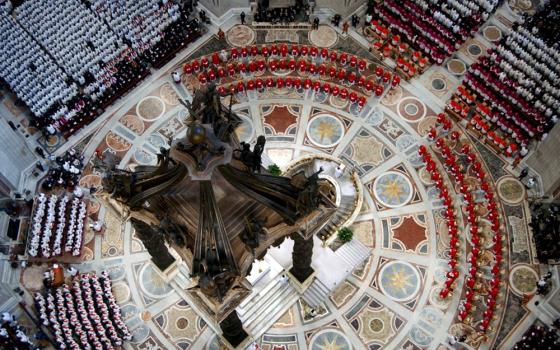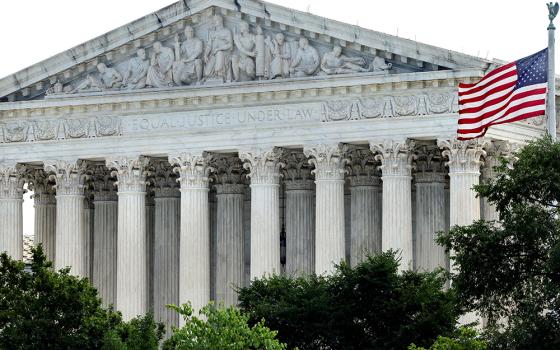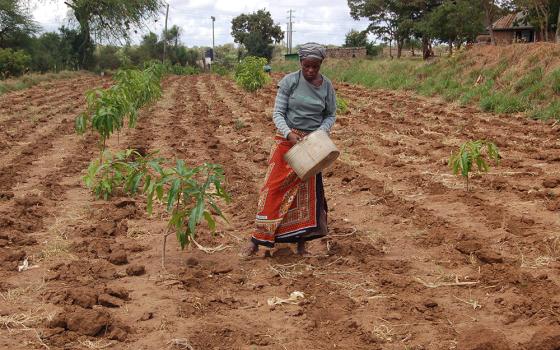The news that the Holy See has asked for broad consultation in advance of the Synod on the Family next year is a very big deal. A colleague reminds me that the USCCB actually engaged in an extensive consultation in advance of the Synod on the Laity in 1987, but no one I know can recall the Holy See asking for this kind of consultation in advance of a Synod, nor does this request bear much resemblance to the requests for information that precede ad limina visits.
The relevant paragraph in the letter from Archbishop Lorenzo Baldisseri, the General Secretary of the Synod of Bishops, reads:
I would be most grateful if your Eminence would distribute the Document to the Dioceses, and ask them to share it immediately as widely as possible to deaneries and parishes so that input from local sources can be received regarding the themes and responses to the questionnaire, as well as any helpful statistics, for the preparation of the Instrumentum laboris.
It is clear the USCCB was caught a bit off-guard. The cover letter sending the note from +Baldisseri says nothing about consulting at the parish level and, further, indicates the replies sought from the bishops will go toward the preparation of the Lineamenta when the letter from +Baldisseri clearly indicates the responses will be used to prepare the Instrumentum laboris. This latter document is more preparatory indicating that the Holy See wants local input at the very beginning of the process.
The other remarkable thing about this document is the questions themselves. For example, Question 1D asks: “To what extent – and what aspects in particular – is this teaching [the Church’s teaching on family] actually known, accepted, rejected and/or criticized in areas outside the Church? What are the cultural factors that hinder the full reception of the Church’s reaching on the family?” It is a healthy invitation to honesty to even request an assessment of the degree to which the Church’s teaching on a given topic may be rejected.
Question 2A is another example of getting to the heart of the matter. It asks: “What place does the idea of the natural law have in the cultural areas of society: in institutions, education, academic circles and among the people at large?” I hope someone will point out, as then-Cardinal Joseph Ratzinger pointed out in 2004, that the natural law has become a “blunt instrument” in public dialogue, rarely taught outside the confines of Catholic intellectual institutions and used in the public square not, as its champions say, to provide a common language for public debate, but as a way to beat others over the head.
All the sub-questions under Question 4 on Difficult Marital Situations and in Question 5 on Same Sex Unions are very interesting. I especially liked 5D – “In the case of unions of persons of the same sex who have adopted children, what can be done pastorally in light of transmitting the faith?” This question leans into the presumption that something should be done, something more than telling those children of same sex couples that they are not welcome in our Catholic schools!
The bishops of the United Kingdom have set up a website to solicit comments from anyone and everyone who wishes to take the time to answer the questions in +Baldisseri’s text. The good news is that they did not ask Kathleen Sebelius to set up their website. The bad news is the worry about what such a broadly cast net will catch. A quick look at the comment boxes on most Catholic websites indicates that there are plenty of people who are not well-informed, others who are perpetually angry, others who are just plain cussed, and some who are all three! I also worry that this consultation suggests a whiff of democratic praxis that the Church should most certainly resist. This is not a vote on whether or not to overturn Humanae Vitae! I would point out that none of the questions posed by +Baldisseri ask anyone to assess the truth of the Church’s teaching.
Whatever the USCCB decides to do by way of consultation, or whatever individual bishops decide to do, I think the value of this consultation should be similar to what one expects when you consult a specialist in medicine. You are seeking expertise. And what the lay faithful can bring is themselves, their stories, how they make sense of their calling to be faithful to the Church’s teaching, and how they combine that teaching with the challenges they face in their lives. I suspect that in addition to soliciting such information at the local level, the USCCB is well advised to give CARA a call – the Center for Advanced Research on the Apostolate is will placed to yield a survey that reflects accurately the attitudes of lay Catholics, and collates that data in a useful way.
My conservative Catholic friends have long said that our Catholic people don’t reject the Church’s teaching so much as they don’t understand the Church’s teaching. My conservative friends are right but not the way they think they are right. It is not that a bit more education in the natural law would convince people to embrace Humanae Vitae. It is the case that in American culture, where religion is reduced to ethics in the public square, and with the heavy importation of Irish Jansenism in the historical development of U.S. Catholic life, our U.S. Church is unhealthily obsessed with the significance of sex in the divine economy of salvation and this has distorted our understanding of marriage and family. It is also the case that economic developments since the 1970s, specifically rising costs and stagnant wages, have made the two-income household a norm and a necessity, which has had profound influences on family life and especially child-rearing. That, too, is something my conservative friends tend to minimize. Conservatives need to be reminded of the old adage that the laws of the Church are the stars to guide you. The phrasing suggests more room for the role of conscience than me conservative friends permit. They prefer a Pelagian check-list spirituality: Do these three things, and avoid those five things, vote this way, and you will get to heaven.
My friends on the left also tend to minimize the degree to which some recent developments in American culture are unhealthy and un-Christian. It goes without saying that the breakdown in traditional family life is intimately connected with the stubborn persistence of poverty, especially in black America. My liberal friends need to take seriously the way sin infects everything we humans do, even the good things we do: Pride lurks in every human heart along with the other deadly sins, tainting even our noble pursuits. If there is a better way of coping with this reality of the human condition than the confessional, I do not know it. My liberal friend need to recall that if the laws of the Church are the stars to guide us, we must let ourselves by guided.
So, I express the qualified hope frankly: The Holy See has seen fit to consult the Catholic laity. This is an enormous responsibility and I hope the Catholic laity are up to it.





